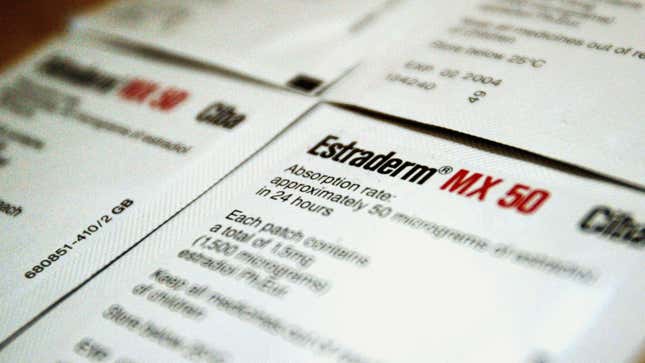A New Study Finds Breast Cancer Risk from Hormone Replacement Therapy is Much Higher Than Previously Thought
Latest

For years, medical researchers have assured patients that hormone replacement therapy—a common treatment to alleviate symptoms of menopause—triggers just a slightly elevated risk of breast cancer in participants. But according to a new study published in the Lancet, the risk of developing breast cancer for those on HRT is twice as high as researchers previously thought, with the likelihood being as high as one in 50 that someone who is on the most common form of HRT for five years will develop breast cancer. The study also found that in some cases, the higher risk continues for much longer after HRT has ended than researchers once assumed.
More on the study, which analyzed dozens of previously published studies on the effects of HRT, from the Guardian:
-

-

-

-

-

-

-

-

-

-

-

-

-

-

-

-

-

-

-

-

-

-

-

-

-

-

-

-

-

-

-

-

-

-

-

-

-

-

-

-








































